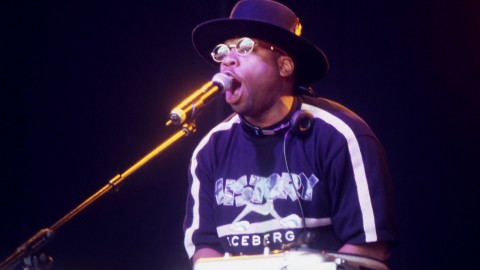
Lack of diversity within the games industry continues to be a huge problem. While a recent report from Ukie may have suggested that things are slowly improving, it’s hard to not be disheartened at times that the industry remains predominantly white, male, and heterosexual.
One campaign that is keen to change that is Do I Look Like A Gamer?. The campaign focuses on promoting diversity and inclusion within the industry while also challenging the stereotype of what the term ‘gamer’ actually means. In doing so, the hope is to “provoke thought and reflection within video games” leading to getting organisations to “consider the type of people they are employing”. It does so through showcasing a look at 40 players and game makers who can inspire young people from underrepresented groups to consider a career path into the industry.
“It’s about breaking beyond the negative stereotypical image of someone who plays games,” explains Nigel Twumasi, founder of the campaign and co-founder of Manga brand, mayamada. “With the campaign, we’re looking to highlight the diversity of people who do enjoy playing video games,” he added. The idea is that “you get a better understanding that video games are something everyone can enjoy, not just one type of person,” Twumasi points out.
It’s also about “letting young people and aspiring professionals know there is a place for them to work in video games”. Twumasi is keen to show people that “it’s not specific to education” and that “we want to empower those from underrepresented backgrounds and let them know they can be a part of producing games”. That’s regardless of “whether they’re taking paths to the games industry through education, vocational positions or being self-taught”.
Besides the visual element of the website which includes streamers, indie game developers, QA testers, and many people involved in esports, the campaign aims to go much further. It used a live stream to launch the event and there will be a series of other events throughout the spring and summer.
These include a careers roundtable appropriately titled “How To Tell Your Parents You Want To Work In Games”, as well as a game design jam. An industry networking event is also planned. While those events are located in London, Twumasi says the team plans to incorporate live stream elements for those that can’t physically get to the venue. That’s important when many people feel restricted due to an inability or unwillingness to travel to London.
“Even before the pandemic, there were good reasons to make events more accessible, and now we’ve spent a good couple of years adapting to the logistics of online events,” Twumasi explains. The careers roundtable will be hosted at Payload Studios in London on Thursday 24th March but it will include “live stream elements”. People will also be able to submit questions even if they can’t physically attend.
Plans are also afoot to enable more people to get involved with the Family Games Design Jam in April and networking events in May too. The hope, Twumasi says, is to “keep the campaign going in years to come”. That includes finding “more local partners to collaborate with” so other areas around the UK can be catered for.

For now, much of the focus is on the 40 players and makers that form the representation campaign. They’re a suitably diverse group. The number was picked in 2020 before COVID changed things, and relates to one hugely iconic game. “We discovered in 1980, the Atari 2600 version [of] Space Invaders was considered to be the first killer app for home video game consoles,” explains Twumasi. From there, the number was chosen as the campaign was originally meant to launch in 2020, being 40 years since the launch of memorable shoot ’em up.
Diversity is not just about demographics either as Twumasi explains. “We wanted to select people who work in various areas of the industry. Diversity to us also means diversity of roles,” he notes. That’s certainly reflected in the group which features roles as varied as a paralegal for a law firm that works with the esports industry, to a prosthetic artist, and charity officer for video games mental health charity, Safe In Our World. These days, gaming is much more than just those who make the games, and the Look Like A Gamer campaign is keen to acknowledge that. “It was important to show more than the obvious ones people may associate with working in video games, like programming and art related roles,” notes Twumasi. “We also made sure to include people who don’t necessarily work full time in games”. Twumasi is keen to stress that “all are valid” and that includes people who “just enjoy playing video games with no intention of actually working in the industry”.
Twumasi is keen to “keep that message going”. He believes that the “best way for us to do that is by working with other organisations”, citing that “we’re looking to make some announcements around disability and accessibility specifically very soon”.
In an industry that’s so heavily dominated by the need to live in a major city, or to be able-bodied and healthy enough to visit such locations regularly, working together virtually may well be the key component in ensuring that this campaign keeps going.

While the roots establish and grow for the Look Like A Gamer campaign, the website encourages joining its Discord server as well as sharing the message on social media. Sponsorship efforts are also possible with the hope being that it can provide 24 work experience roles for young people in 2022.
With representation an issue in the games industry and one that should not go away until things improve, it will be interesting to see what impact the campaign can make in the long term
To find out more about Do I Look Like A Gamer or to get involved, its website has everything you could need to know.
The post How Do I Look Like A Gamer aims to promote diversity and inclusivity in the games industry appeared first on NME.




